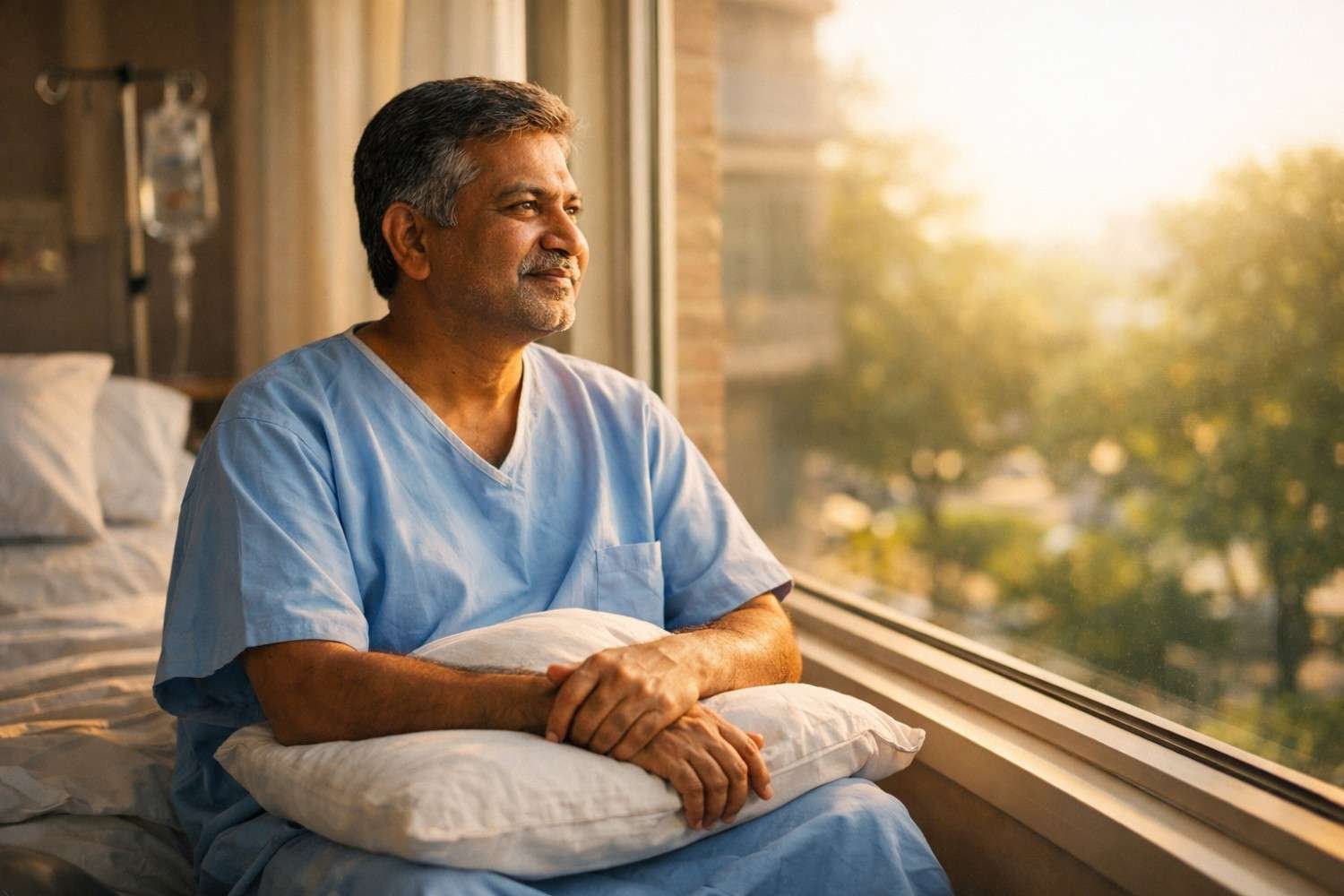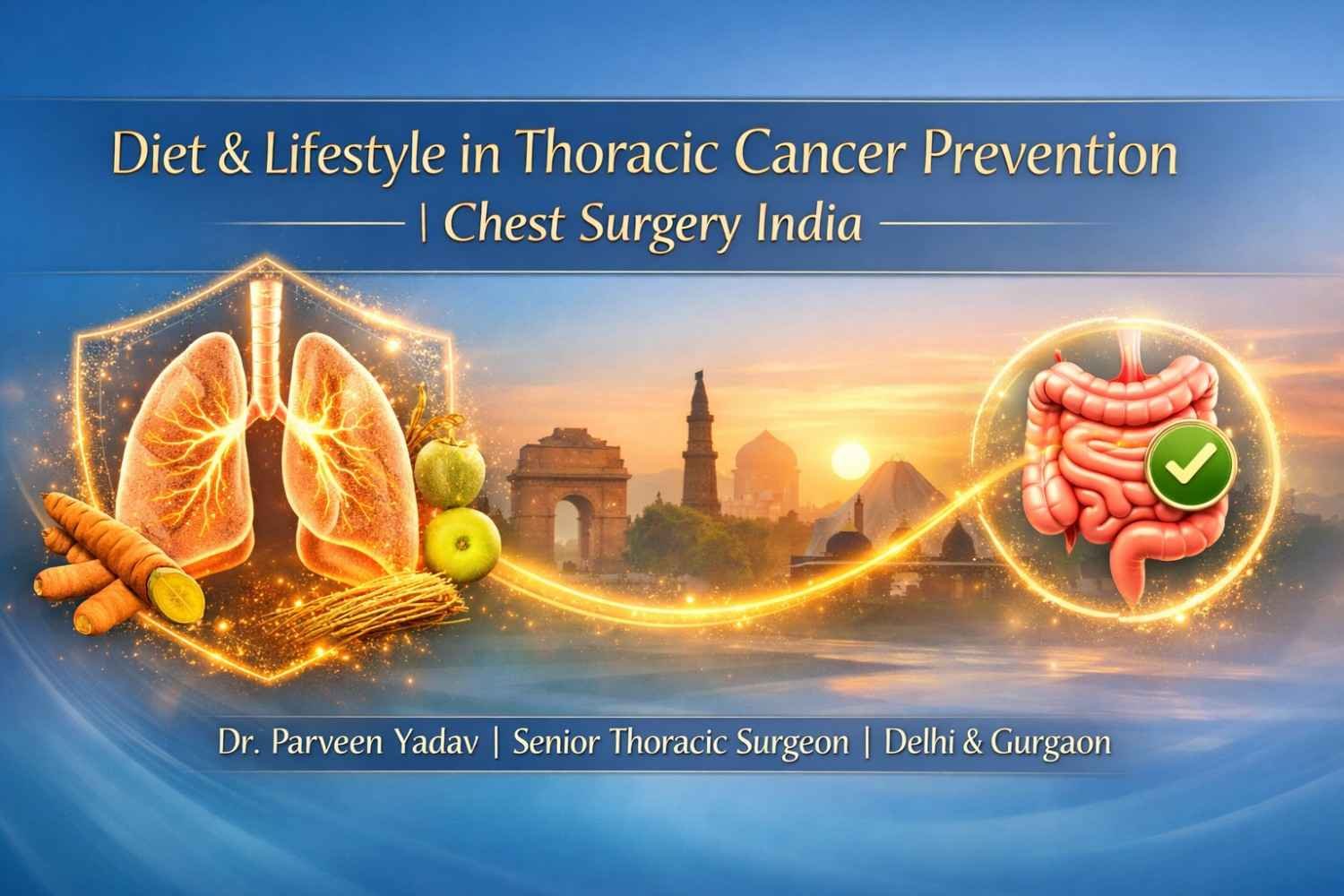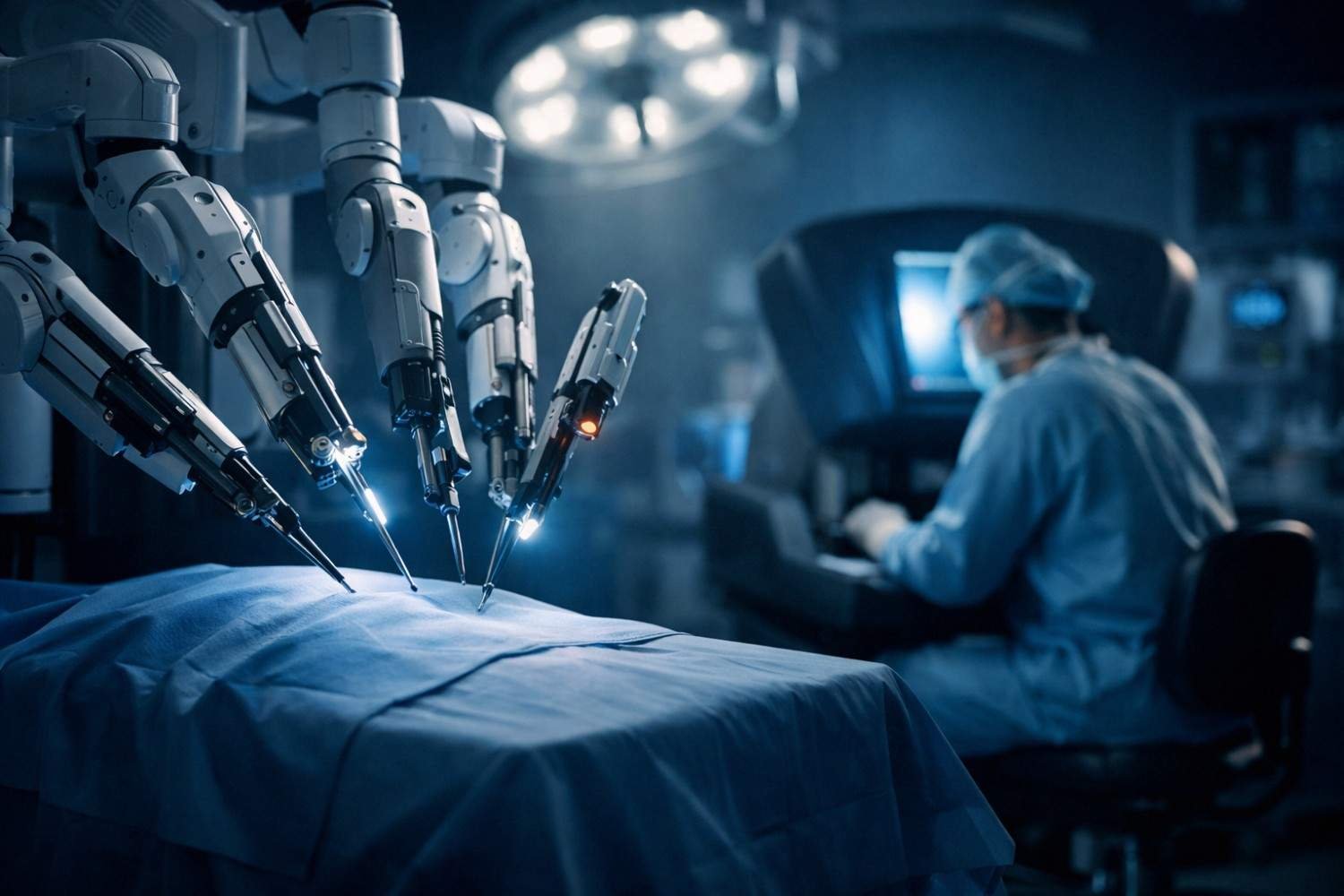

Lung cancer is one of the most prevalent and severe forms of cancer worldwide. As per the information, it is one of the highest causes of cancer-related deaths. Understanding lung cancer and the general treatment choices is necessary for patients. Chest Surgery India stands out as a centre of excellence for lung cancer specialists in Gurgaon, Delhi, offering cutting-edge treatments and personalised care for lung cancer patients. This guide aims to provide an in-depth look at lung cancer, its diagnosis, and the various treatment modalities available at Chest Surgery India, the best lung cancer hospital in Gurgaon, Delhi.
Lung cancer starts in the lungs and can spread to other parts of the body if not treated promptly. There are two primary varieties of lung cancers.
1) Non-Small Cell Lung Cancer
2) Small Cell Lung Cancer
Definition: NSCLC is the most common lung cancer, considering around 85% of all cases. It includes several subtypes, such as adenocarcinoma, squamous, and large-cell carcinoma.
Characteristics: NSCLC generally grows and spreads more slowly than SCLC. It is often diagnosed at an earlier stage, which can improve treatment outcomes.
Treatment Approach: Depending on the stage and specific genetic mutations, treatment for NSCLC typically includes surgery, radiation therapy, chemotherapy, and targeted therapy.
Definition: SCLC accounts for about 15% of lung cancer cases and is more aggressive than NSCLC. It is divided into two stages: the limited stage (confined to one lung and possibly nearby lymph nodes) and the extensive stage (spread to other body parts).
Characteristics: SCLC overgrows and tends to spread rapidly to other parts of the body. Due to its aggressive nature, it is often diagnosed at a more advanced stage.
Treatment Approach: Treatment for SCLC usually involves a combination of chemotherapy and radiation therapy. Surgery is less common due to the rapid spread of the cancer.
Several aspects can raise the risk of developing lung cancer, including:
Smoking: The ultimate cause of lung cancer, responsible for about 85% of cases. Both smokers and those exposed to secondhand smoke are at increased risk.
Exposure to Radon Gas: A naturally occurring radioactive gas that can get in homes and is the second highest cause of lung cancer.
Asbestos and Other Carcinogens: Occupational asbestos exposure, certain chemicals, and other pollutants can significantly increase the risk.
Family History: A genetic predisposition to lung cancer can increase risk. Individuals with a family history of lung cancer should be more vigilant about screening and risk factors.
Lung cancer symptoms can often be mistaken for other respiratory conditions. Some common symptoms include:
Early and proper diagnosis is essential for effective treatment. Diagnostic methods include:
Imaging Tests: CT scans, X-rays, PET scans, and MRI to identify abnormal masses and determine the extent of the disease.
Biopsy Procedures: Obtaining tissue samples through bronchoscopy, needle biopsy, or surgical biopsy to confirm cancer type for microscopic examination.
Blood Tests: Checking for specific markers associated with lung cancer, including certain proteins and genetic mutations.
Molecular Testing involves identifying genetic mutations to tailor targeted therapies. It consists in analysing cancer cells for specific changes in genes and proteins.
Lung cancer treatment is multifaceted and depends on the patient's type, stage, and overall health. At Chest Surgery India, a comprehensive range of treatment options is available.
Surgical intervention is often the first line of treatment for early-stage lung cancer. Types of surgical procedures include:
Surgery seeks to remove the tumour and some surrounding healthful tissue to ensure complete excision.
Radiation therapy or treatment uses high-energy rays to kill cancer cells. Types of radiation therapy include:
This treatment is especially effective for patients who cannot undergo surgery.
Chemotherapy uses medicines to kill rapidly dividing cancer cells. It can be administered intravenously or orally. Typical side effects include fatigue, nausea, and hair loss, which can be managed with supportive care.
Targeted therapy involves medicines that specifically target cancer cells' genetic mutations. It is effective for patients with specific genetic profiles and generally has fewer side effects than chemotherapy.
These treatments can be particularly effective for patients with specific mutations.
Immunotherapy boosts the body's immune system to fight cancer. It uses drugs that help the immune system recognise and attack cancer cells. This treatment can be particularly effective for certain types of lung cancer.
At Chest Surgery India, a multidisciplinary team of experts collaborates to provide comprehensive care. The team includes thoracic surgeons, oncologists, radiologists, pulmonologists, and support staff, ensuring personalised and effective treatment plans. The facility boasts state-of-the-art technology and a patient-centred approach.
Lung cancer therapy can be physically and emotionally challenging. Psychological support, counselling services, and rehabilitation programs at Chest Surgery India help patients cope with the disease. Nutritional advice and lifestyle modifications are also provided to support overall well-being.
Many patients have successfully battled lung cancer with the help of Chest Surgery India. Real-life case studies and testimonials highlight the advanced treatments and compassionate care provided. These success stories deliver hope and motivation to new patients.
Lung cancer treatment is complex and requires a tailored approach to each patient's needs. Under Dr. Parveen Yadav's expertise as the best Lung cancer surgeon in Gurgaon, Delhi, Chest Surgery India provides world-class treatment options, cutting-edge technology, and a compassionate, multidisciplinary team dedicated to achieving the best patient outcomes.
Visit the website for more information on lung cancer treatment options in Gurgaon, Delhi, or book a consultation with the experts at Chest Surgery India.
1. What are the first signs of lung cancer?
Constant cough, shortness of breath, and chest pain are common early signs of lung cancer.
2. How is lung cancer diagnosed?
Lung cancer is diagnosed using imaging tests, biopsies, blood tests, and molecular Testing.
3. Can lung cancer be cured?
Early-stage lung cancer can often be cured with surgery, but treatment for advanced stages focuses on controlling the infection and enhancing the grade of life.
4. What is the effective treatment for lung cancer?
The most effective treatment depends on the type, cause and stage of lung cancer and may include surgery, radiation therapy, chemotherapy, targeted therapy, or immunotherapy.
5. How does immunotherapy work for lung cancer?
Immunotherapy helps the resistant system identify and attack cancer cells, enhancing the body's natural defences against the disease.
6. Are there any new treatments for lung cancer?
New treatments, including advanced immunotherapies and targeted therapies, are constantly being generated and tested in clinical trials.
Dr. Parveen Yadav is a highly recommended surgeon or specialist for lung cancer treatment in Gurgaon, Delhi. He specialises in minimally invasive and robotic thoracic onco surgery. He has been recognised for 17+ years as the best chest surgeon in Gurgaon, Delhi, for his expertise in treating chest-related (Chest Surgery) ailments, such as Esophageal (Food Pipe Cancer), Lung, Tracheal (Throat), Chest wall tumours, Mediastinal Tumours, Empyema, and Bronchopleural Fistula cancer. With a focus on precision and innovation, he is dedicated to offering exceptional care to his patients, utilising techniques to ensure optimal outcomes.

18+ Yrs Exp | 5,700+ Thoracic & Robotic Cancer Surgeries
Dr. Parveen Yadav is a Director and Senior Consultant in Thoracic and Surgical Oncology, specializing in minimally invasive and robotic lung and esophageal surgeries, with advanced training from AIIMS and Tata Memorial Hospital.
View Full Profile Pain After Thoracic Surgery: Tips for Smooth Recovery
Pain After Thoracic Surgery: Tips for Smooth Recovery
 Diet & Lifestyle for Thoracic Cancer Prevention | Dr. Parveen Yadav
Diet & Lifestyle for Thoracic Cancer Prevention | Dr. Parveen Yadav
 Robotic Thoracic Surgery: How Da Vinci Technology is Revolutionizing Chest Procedures
Robotic Thoracic Surgery: How Da Vinci Technology is Revolutionizing Chest Procedures
Struggling with pain after chest surgery? Dr. Parveen Yadav shares expert recovery tips, causes of shoulder pain, PTPS signs, and what your discharge sheet won't tell you.
Discover how diet, breathing exercises & daily habits help prevent and recover from thoracic cancer. Expert insights from Dr. Parveen Yadav, Chest Surgery India
Discover how Da Vinci robotic surgery is transforming chest procedures in Gurgaon. Less pain, faster recovery & expert care by a certified thoracic surgeon
Copyright 2026 © Dr .Parveen Yadav all rights reserved.
Proudly Scaled by Public Media Solution!